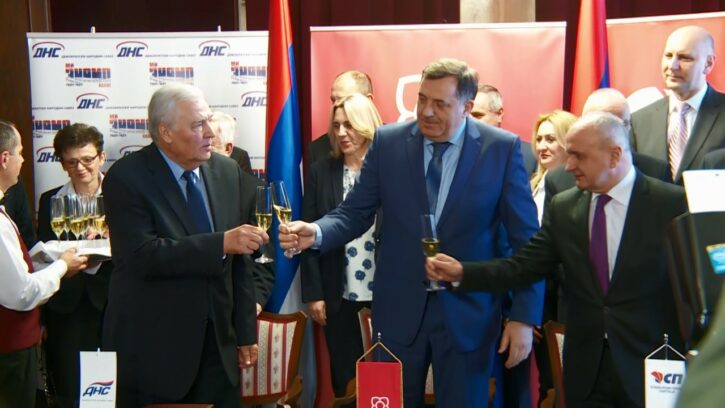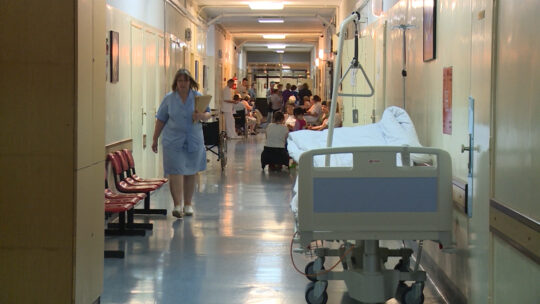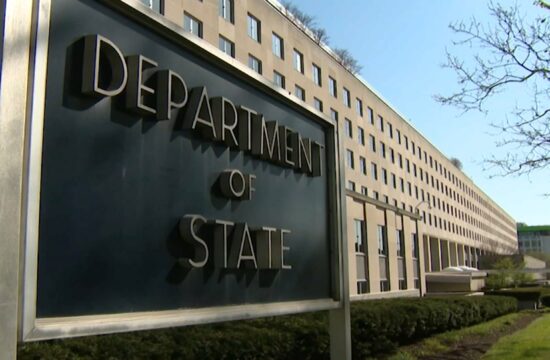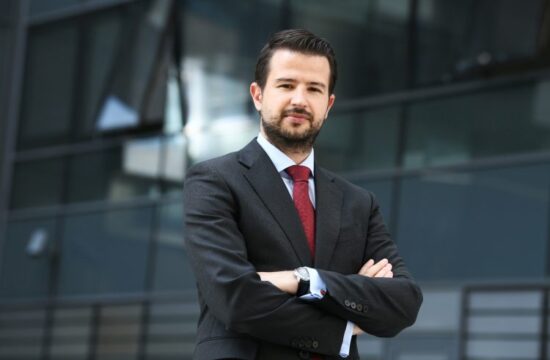
One of the three partners left on Saturday the coalition that holds the majority in the Parliament of the Bosnian Serb-majority half of the country, leaving the pact led by the Alliance of Independent Social Democrats (SNSD) of Milorad Dodik, citing unfair treatment.
Although weakened, the coalition with the Socialist Party (SP) still allows Dodik to dominate the votes in the National Assembly of the semi-autonomous Republika Srpska (RS) entity.
The Democratic People's Alliance (DNS) is disappointed with the way its coalition partners were treating the party, party leader Marko Pavic wrote in a letter to Dodik.
Some of the party members were dismissed from their positions in local communities and the significance of the party was constantly being diminished, he said.
“The least we expected was not to fight each other in local communities that were the personification of the DNS-SNSD policy. If we were not able to stop that, then we sent a message that we are not honest friends and partners,” the letter said.
“A bigger problem is that citizens have become divided and that animosities which border on hatred were created,” Pavic wrote.
He informed the SNSD leader and Serb member of Bosnia’s tripartite Presidency that his party does not feel obliged to harmonize its positions with others in the Coalition and that from now on, it will define its own policies and act for the benefit of the people.
Sources within the party said the animosities culminated two days ago when two party members were dismissed from the positions of the head of the local health institution and a kindergarten in Prijedor.
Saturday’s move of the DNS was “ill-considered and irresponsible,” said SNSD spokesperson Radovan Kovacevic, adding that his party was open for discussions.
The news reached Dodik as he was visiting Serbia for a meeting with President Aleksandar Vucic and Hungarian President, Viktor Orban.
Dodik’s party deputy and Republika Srpska President, Zeljka Cvijanovic, said that if there are problems in the Coalition, they can be solved through discussions.
The two parties have been in a coalition for two decades and “when misunderstandings occur, then people need to sit down, talk and solve the problems,” she said.




